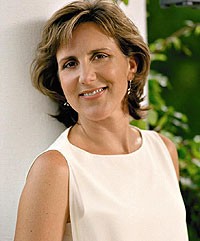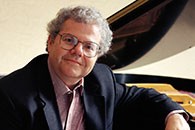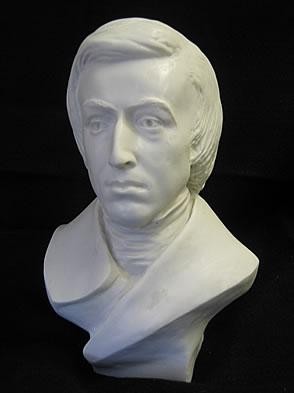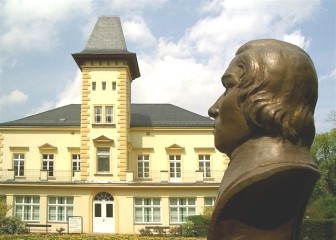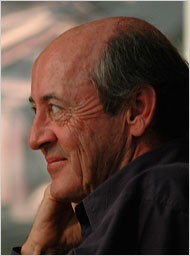Dawn Upshaw and Emanuel Ax at Carnegie Hall
Celebrating Chopin and Schumann at 200
By: Susan Hall - Mar 19, 2010
Dawn Upshaw, Soprano, Emanuel Ax, PianoFrederic Chopin Songs, Opus 74
Frederic Chopin Mazurkas, Opus 41
Stephen Prutman, songs, Piano Lessons, text by Billy Collins
Frederic Chopin, Nocturnes, Opus 27
Robert Schumann, various songs, from Opuses 39, 96, 23, 98a, 83, 89, 79
Carnegie Hall
March 17, 2010
Partnership was on prominent display at Carnegie Hall, in a concert featuring Chopin and Schumann, both composers in the 200th anniversary year of their births. Pianist Emanuel Ax is touring this year with the brilliant, dynamic soprano, Dawn Upshaw. While both adjectives could well be applied to Ax, this evening, he made the piano sing with such tender lyricism, that he and Upshaw seemed more like a duet than a singer with accompaniment. Ax is no second fiddle and both performers remind us that Carnegie is the go-to hall for sound in New York.
To reduce the Upshaw voice to words is unfair. She is one of the most significant and dramatically moving singers performing today. Her voice has an unusual mix of pure radiance and earthy warmth, an empathic timbre, and an often palpable tug of yearning. Upshaw's particular gift as a performer is not simply that of an actress, but rather a person who inhabits music on profound levels. We are pulled toward her on stage. She is not just projecting out at us. At the end of a strong Upshaw performance, one feels joined in her emotionally rich world.
Chopin's songs are seldom performed, but in them his expressive aesthetic is filtered through the piano and voice. Both songs and mazurkas evoke the folk music of the Mazovian plains in central Poland. Chopin had little direct contact with Volkston, but he would have heard it in Warsaw in salon dance pieces and songs.
Since so few people know that Chopin composed songs, their resurrection is appropriate by Upshaw, who often promotes unknown contemporary composers. Why not a classical composer's unheralded songs, she must have asked.
Ax performed two early mazurkas. A native of Lvov, Poland, Ax has an intimate feeling for Polish-born Chopin. Chopin had composed the mazurkas in his first summer at Nohant, the home of George Sand. Summers in Nohant were productive for Chopin, who composed there and then taught and performed in Paris during the winter. In the mazurkas, Chopin uses the traditional Polish folk ensemble which had melody in the violin or fujarka, a high-pitched pipe, accompanied by a drone beating the bass. Iconoclastic harmonies are introduced.
Upshaw then presented another three Chopin songs, the last one, My Darling, recalling the mazurkas.
Programming which combines songs and small piano compositions which resemble songs, is very satisfying. This program called attention to lyricism in both instruments.
Stephen Prutman's songs based on former Poet Laureate Billy Collins' six "Piano Lessons" were warm and humorous. Upshaw had sent the Collins' poems to Prutman as a gift, and perhaps a not so subtle prod. She is protean in her search for novel and yet workable marriages between words and music.
The second half of the program began with two Chopin nocturnes, also songlike in their lines. The nocturne is by its nature designed to imitate the voice, facilitated by a sustaining pedal which enables wide-spread arpeggios to support ornamental melody. Texturally these early nocturnes are fairly simple, but hints of the closely woven textures and delicately shaped phrases are apparent as Ax weaves his magic.
Upshaw concluded with a variety of Schumann songs. Listening to them, it's hard to believe that financial concerns drove Schumann to compose in this genre. In a letter to Hirschbach, a noted singer and songwriter, he said he didn't consider song composition great art. Surely his own wish to synthesize poetry and music led him to his beautiful lieder.
Although poet Ezra Pound as music critic talks about the need for the words of a song to be 'cantabile', Schumann insists that the poem must be great. Whatever the stated intent, this evening the lied and piano were equal partners in rendering his powerful and moving songs.
Newly commissioned songs by Osvaldo Golijov were originally scheduled, but the composer is over-committed. He is wanted everywhere (and has often taught at Tanglewood.) Even Upshaw, who he calls his muse and collaborator, was unable to draw the songs out of him.
To make up to disappointed concert goers, Upshaw performed the first song Golijov composed for her as her first encore. In the beguiling Lua descolorida, Upshaw embraced all the suggestive echoes of Golijov's work: classical chamber music, klezmer, Jewish liturgical, and yes, the tango.
The partners ended with a lovely rendition of a Hugo Wolf's Er Ist, a different take from Schumann's on the Eduard Morike poem. Upshaw, to the audience's dismay, announced this was the last song she and Ax had brought with them. They are a duo to be enjoyed now and out into the future.

